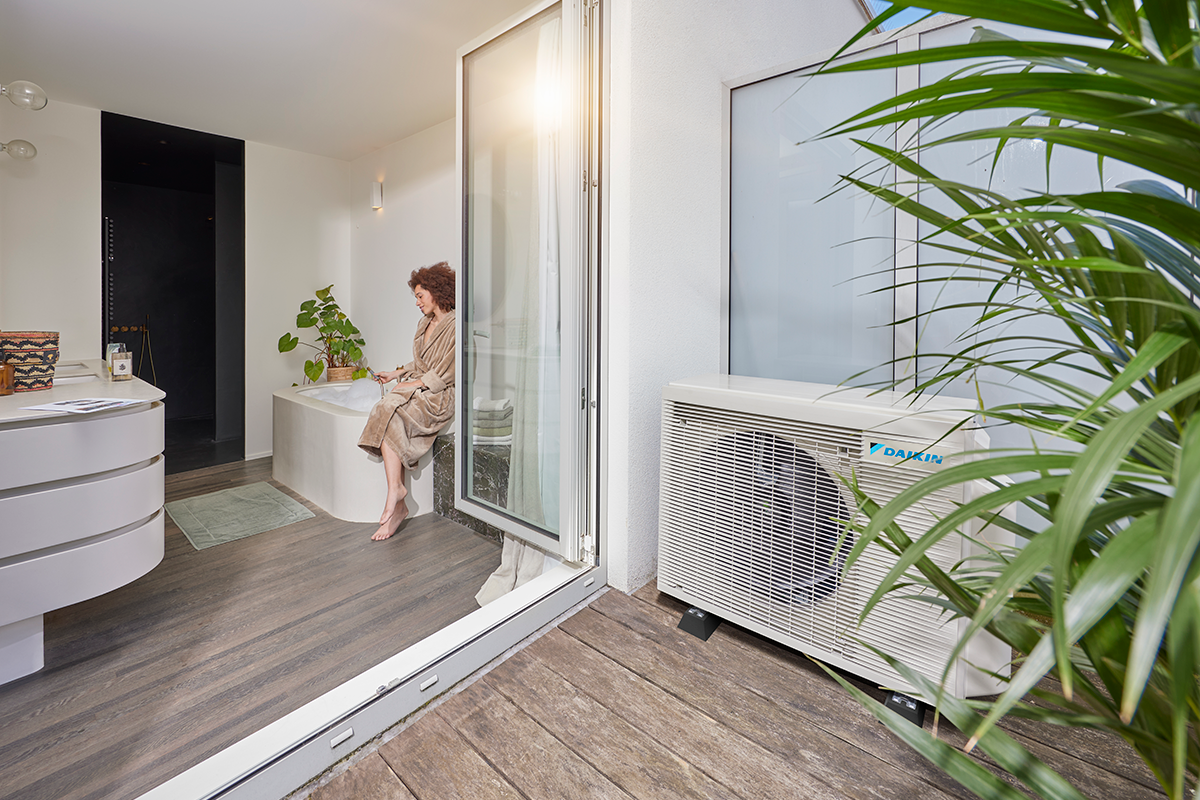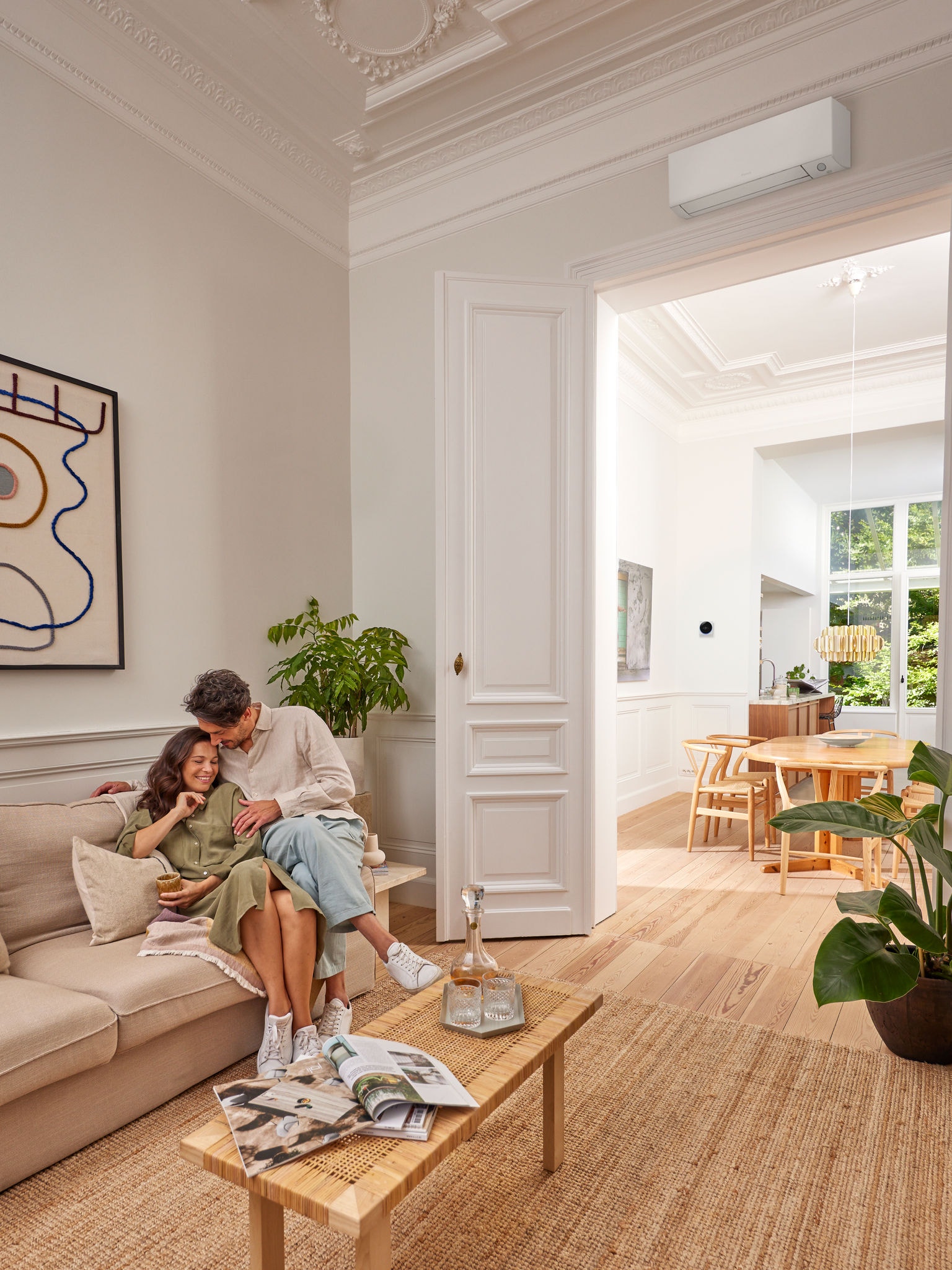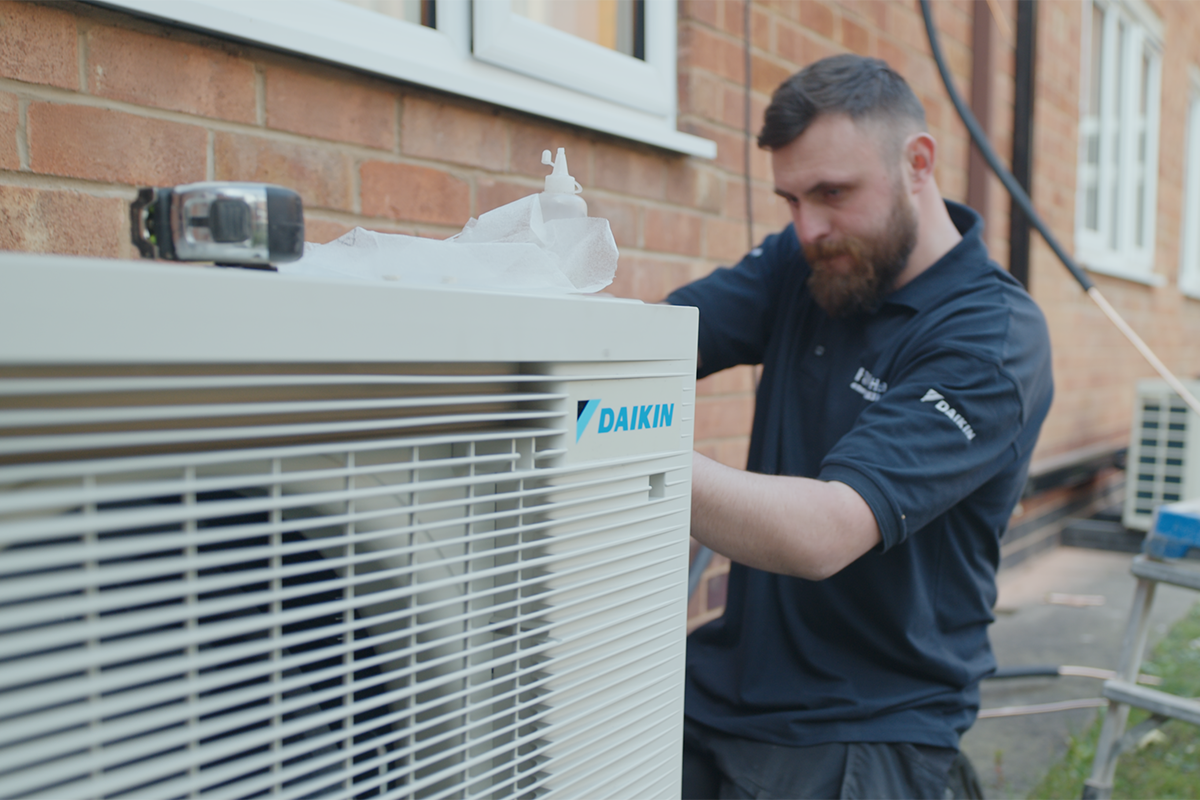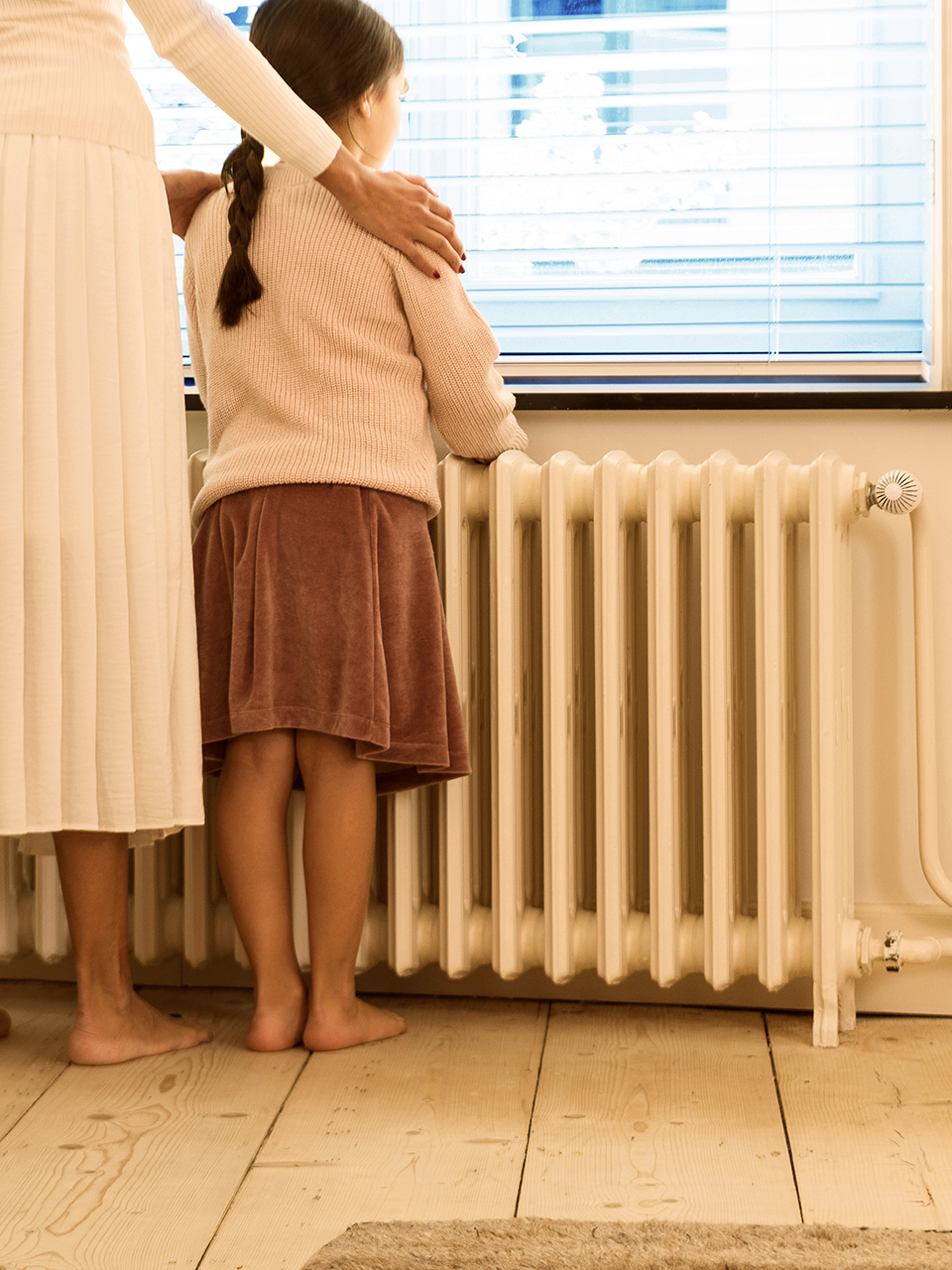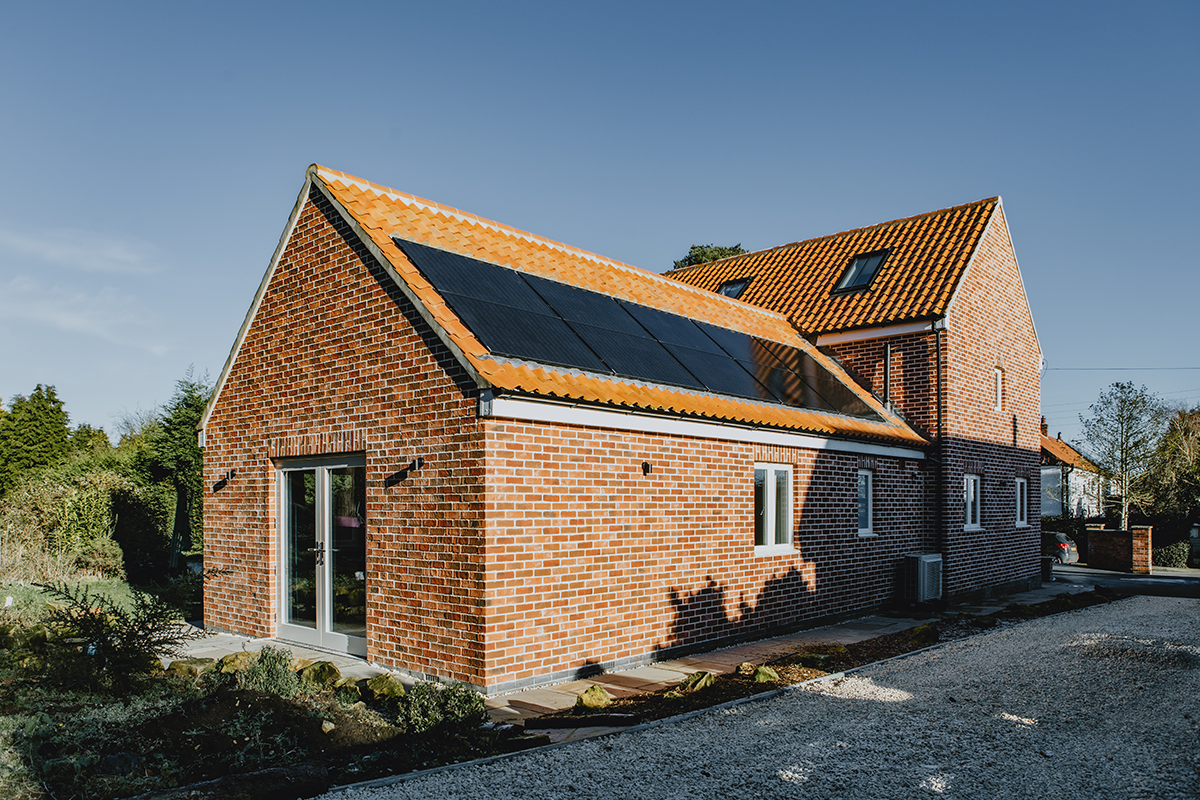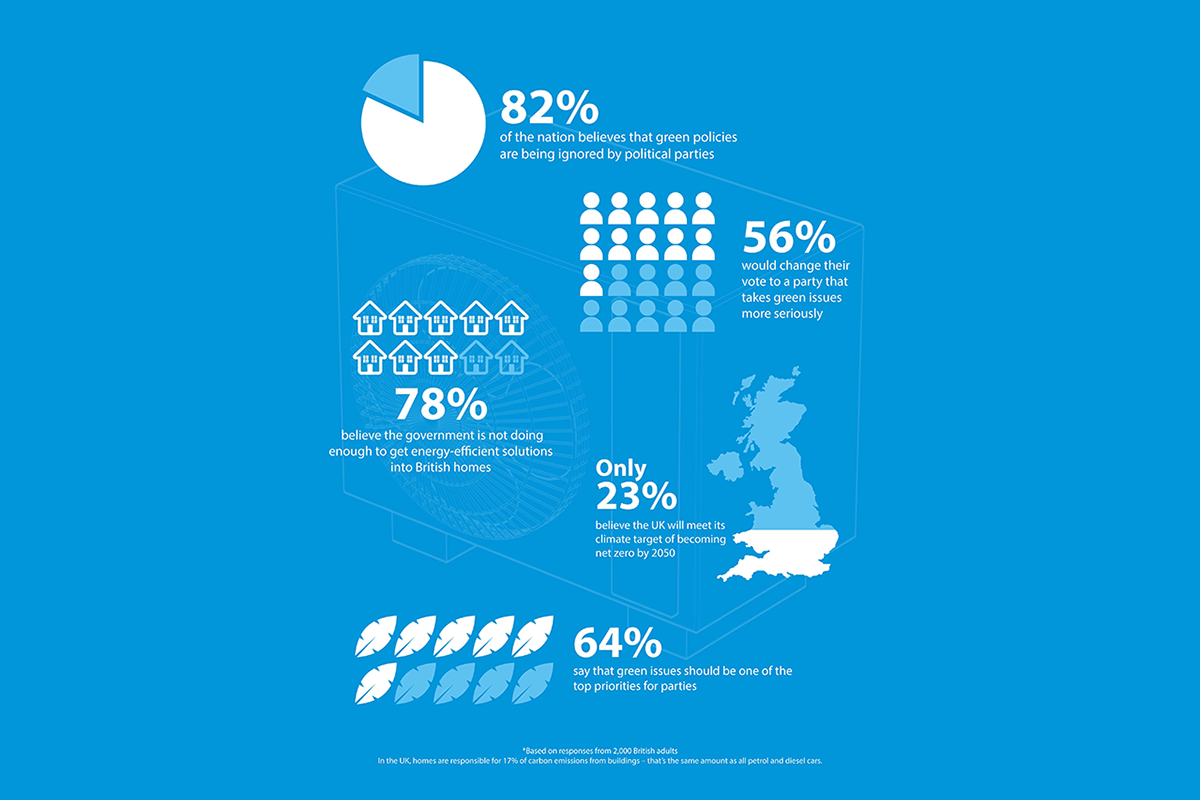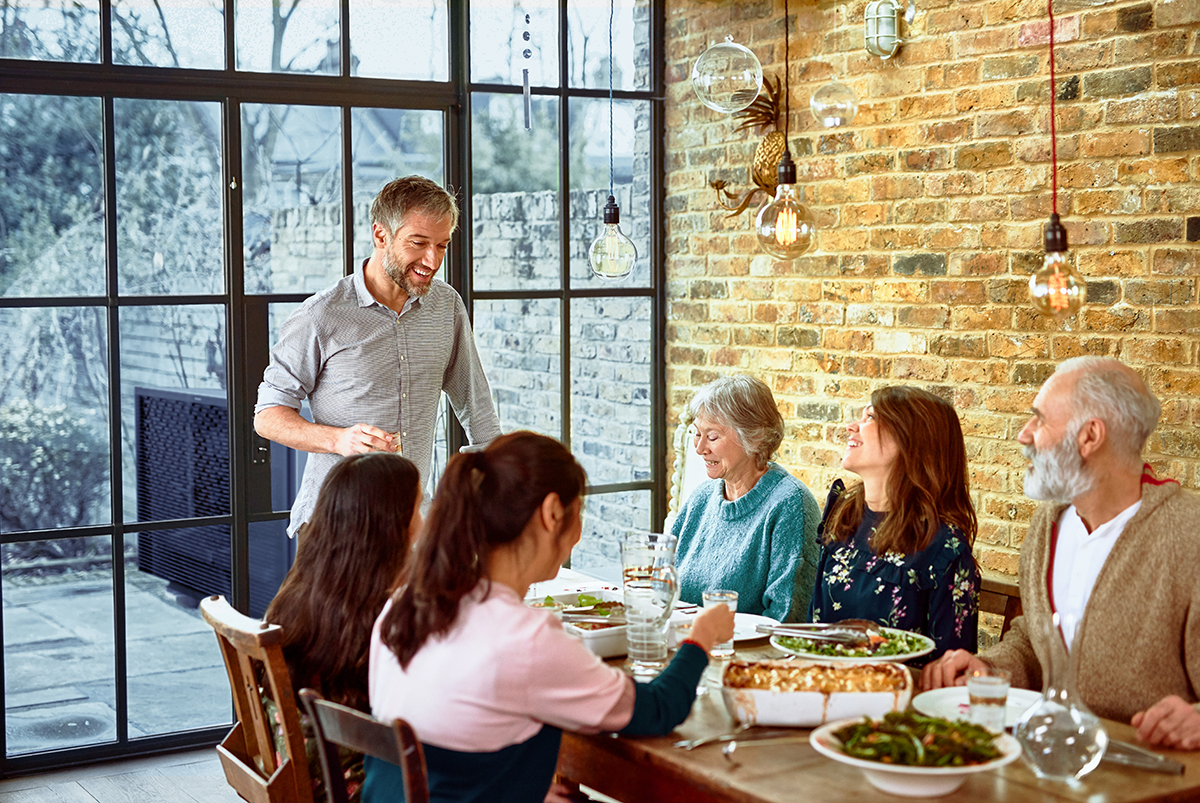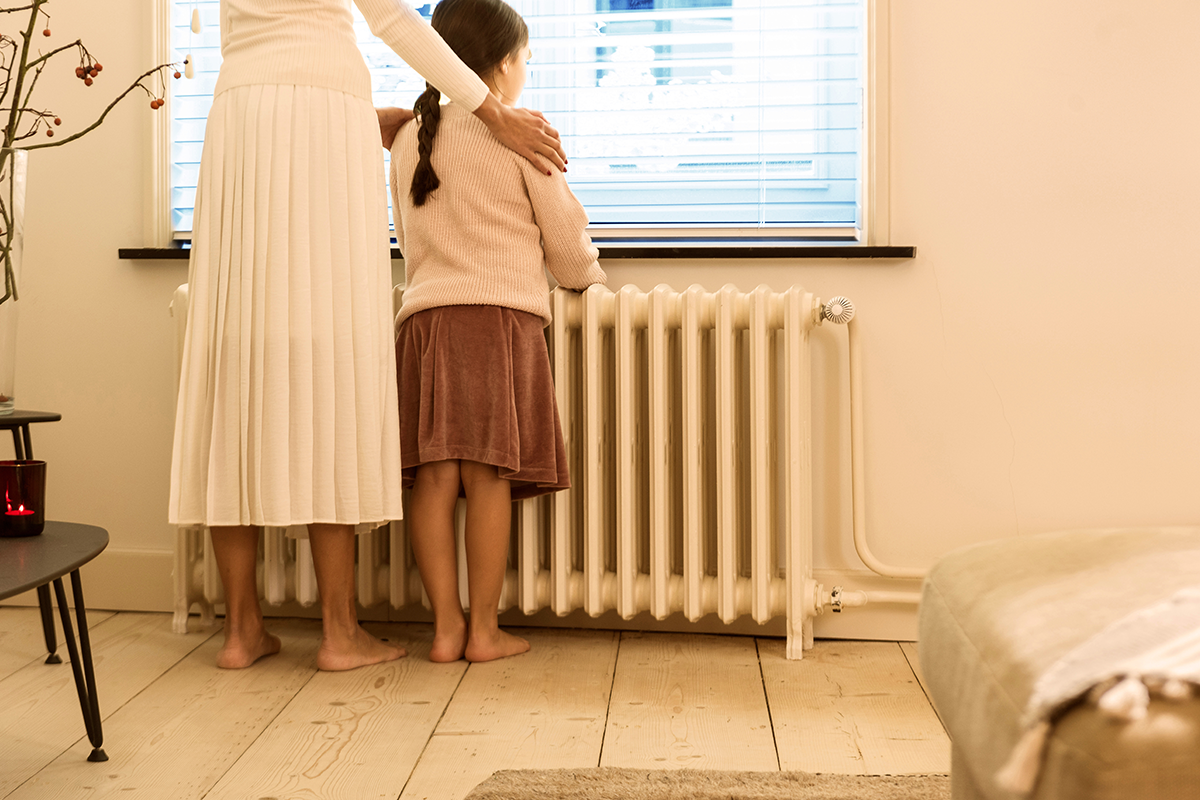
Explore the future of home heating
Keeping pace with change
We are all making changes to the way we live. We’re changing everything from the cars we drive, how we shop and the energy we use. And, we’re switching to heat pumps as the eco-friendly way to heat our homes.
Why switch to a heat pump?
An air source heat pump can replace or enhance your existing central heating system to heat, cool and provide hot water for your home. It’s the sustainable way to save money, future-proof your home, and reduce your carbon footprint.
- Cost-effective
- Sustainable
- Home-friendly
The cost-effective solution
An air source heat pump can save you hundreds of pounds every year on your energy bills. And thanks to the government’s Boiler Upgrade Scheme, you’ll also receive £7,500 when you replace your boiler with a Daikin heat pump.
The sustainable solution
Daikin’s heat pumps are the most planet-friendly choice you can make. They run on R-32 refrigerant, reducing the environmental impact of the heat pump by 70%. It’s a simple way to take personal responsibility for your carbon footprint.
The home-friendly solution
Our heat pumps are designed to be compact and stylish, blending into any home setting. Some of our models are so compact, they’ll even fit under a window. And thanks to the whisper-quiet operation, you’ll hardly notice it’s there.
Why choose Daikin?
Our award-winning, super-quiet air source heat pump technology already provides heating, hot water and optional cooling for more than 1 million homes across Europe. There’s a unit in the range for every type of home, even the smallest space, and you can choose from various finishes to get the look that suits yours.
Watch & learn
Settle back and enjoy learning all you need to know about our solutions with these stories, carefully selected for you
All your questions answered
You can get advice on which type of heat pump is best suited to your home from a Daikin installer, one of our Sustainable Home Centres or using our Heat Pump Calculator.
The typical lifespan of a heat pump is generally between 15 and 20 years, though this depends on a number of factors. For example, maintenance. Although heat pumps are a low-maintenance solution, an annual check-up by your installer or service partner will help maximise its lifespan.
Yes, heat pumps can connect to either old or new radiators.
If you already have radiators in your home, high-temperature heat pumps or hybrid heat pumps (if you’re replacing a gas boiler) can easily connect to them and use existing piping without the need to replace the radiators or carrying out additional works.
Yes, heat pumps can be used for cooling, but this depends on the type of emitters you have.
For example, the ideal emitter for cooling with low- or high-temperature heat pumps is a heat pump convector (also known as a fan coil unit). This works similarly to a traditional radiator with the added benefit that it can both heat and cool a room.
Some hybrid heat pumps can connect to air-to-air heat pump (also known as air conditioners), which are another popular heating and cooling solution.
A Daikin heat pump installer will manage everything related to ordering, delivery and installation of your heat pump. Find an installer here
The simplest answer is, it depends. Installing a heat pump is more than just the placement of an indoor and an outdoor unit, therefore there is no definite timeframe when it comes to the amount of time it will take to install a heat pump as it will depend on a number of different factors such as:
- Type of home: The first thing that will be taken into account is the type of home a heat pump will be installed in. Is it a new-build or an existing home? With new-build homes, the planning needs to be taken into account with all other building currently taking place. With existing homes, things such as whether existing emitters will be used or will be replaced with new ones will play a part in the time needed.
- Type of heat pump: Since there is a variety of different heat pumps, each one also has its own time requirement for the installation.
- Additional works: Whether you are installing a heat pump in an existing or new-build home, there may be additional works that need to take place in order to ensure that you’re getting the most out of your new system. This could include the installation or replacement of emitters (such as radiators), optimising your insulation etc.
The price of installing a heat pump varies depending on the type of heat pump you choose and the country you live in.
Other factors that can affect the price are renovation or additional building works (such as insulation) that need to carried out, plus your installer. Different installers will have different prices according to their expertise and experience.
We advice you to consult your chosen Daikin installer, or your government's website, for more information. Find out more about the different incentives on offer, and how to make your eco-friendly home even more affordable.
Most heat pumps usually come with an indoor and an outdoor unit. Each unit produces sound when in operation, this sound is generally measured in dBA and these levels range from a scale of 0 dBA to 140 dBA.
When looking at sound levels you will also see specifications given for sound power level and sound pressure level.
Sound power level is the sound level measured directly at the source.
Sound pressure level is the sound level measured at a specified distance (usually 1.5 - 2 metres) from the source.
The indoor units of Daikin heat pumps generally produce a sound pressure level of about 30dBA, which is comparable to the sound of a person whispering.
Outdoor units, since they come in a bigger variety of sizes, range in sound pressure levels between 40dBA and 62 dBA, which are comparable to the sounds of birds a chirping and people having a conversation respectively.
Heat pumps are not very demanding. We advise scheduling an annual maintenance appointment with your installer or service provider to make sure your pump keeps working as efficiently as possible. A typical service would include a number of standard checks, as well as a thorough cleaning of the unit and filters.
Learn more
Find out more about heat pumps and how they could make a difference to your home, and the environment.


